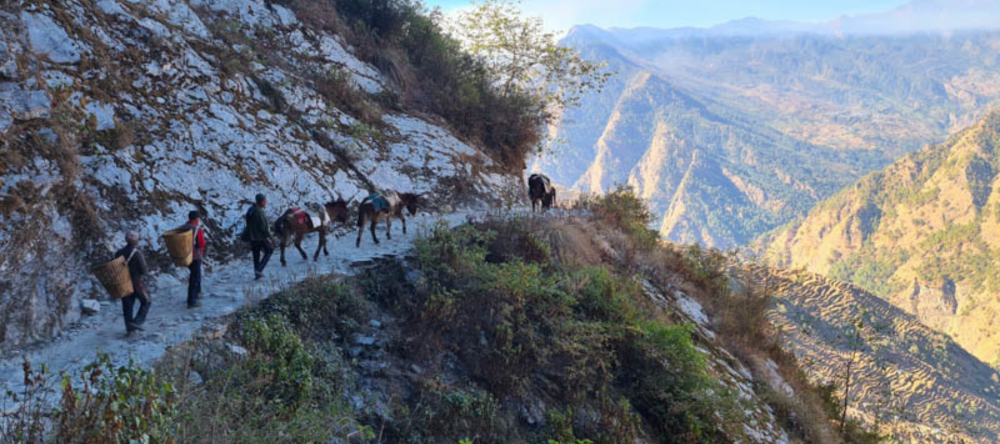
It is important to become aware of the interdependence of all beings and the world around us. To help them strengthen the feeling of being connected to the world and to all beings, psychologist and therapist, Paul Gilbert, a specialist in self-compassion and compassion, offers his patients visualizations like this one:
“I invite you to imagine before you a beautiful blue sea, warm and calm, caressing a sandy coastline. Imagine that you are simply standing with the water gliding pleasantly over your feet. And now, looking up to the horizon, imagine that this sea has been here for millions of years, and has been a source of life ever since. It has seen many things in the history of life, and it knows many things. Now imagine that this sea welcomes you fully for what you are, that it knows your struggles and your sorrows. Let a special bond be established between you and the sea, with its power and wisdom, while fully accepting who you are.”
Understanding this universal interdependence is the very source of altruism. By understanding how much our physical existence, survival, comfort, health, etc. depend on others and what the outside world provides us – food, recreation, etc. – it becomes easy to put ourselves in their shoes, to want their well-being, to respect their aspirations and to feel intimately concerned with the fulfillment of those aspirations.
How can we then not take care of the natural balances that have been established over time? It is necessary, today more than ever, to recognize the incredible richness and subtlety of the interdependent links that associate all the actors and dynamic forces of Nature.
I would like to share with you a very inspiring example, told to me by my friends from Karuna-Shechen, the humanitarian association I co-founded. Since this year, Karuna has been extending its programs to a very isolated region of Nepal, the Ruby Valley, named after the precious stone, because deposits are believed to be found there (to learn more, click here
). There, Tamang and Dalit people cohabit: it is with wonder that our employees on the field met these families of Tibetan descent living in almost autarky. Far from the health and education structures, but also from the food suppliers, they necessarily live in harmony with their environment. The animals in particular have a central place there: the locals laugh about it themselves, saying that in their home, there are more animals than humans!
These populations have a heightened awareness of the link that binds them, the humans, with all the other living beings with whom they cohabit. They cultivate the land in a sustainable and ecological way, to preserve it and guarantee food for themselves and for future generations. They raise and care for their animals, which bring them milk and allow them to cultivate the fields. When asked if they would prefer to live in a place closer to the city, and its infrastructures, they say, “Why go somewhere else, when the land here provides everything we need?” To find out more about Karuna’s actions with these people, click here.
What can we learn from the people we met in Ruby Valley? It is essential to become aware of the interdependence of all things and to assimilate this worldview, so that our way of acting is transformed. Altruism and compassion are intimately linked to this understanding of interdependence, which allows us to break down the illusory wall we erect between “me” and “others”, between “I” and “we”, and makes us responsible for our earth and its inhabitants.
As the Dalai Lama explains: “To acquire a sense of universal responsibility – to perceive the universal dimension of each of our actions and the right of all to happiness and non-suffering – is to acquire an attitude of mind that, when we see an opportunity to help others, we should seize it rather than worrying only about our own small interests.”